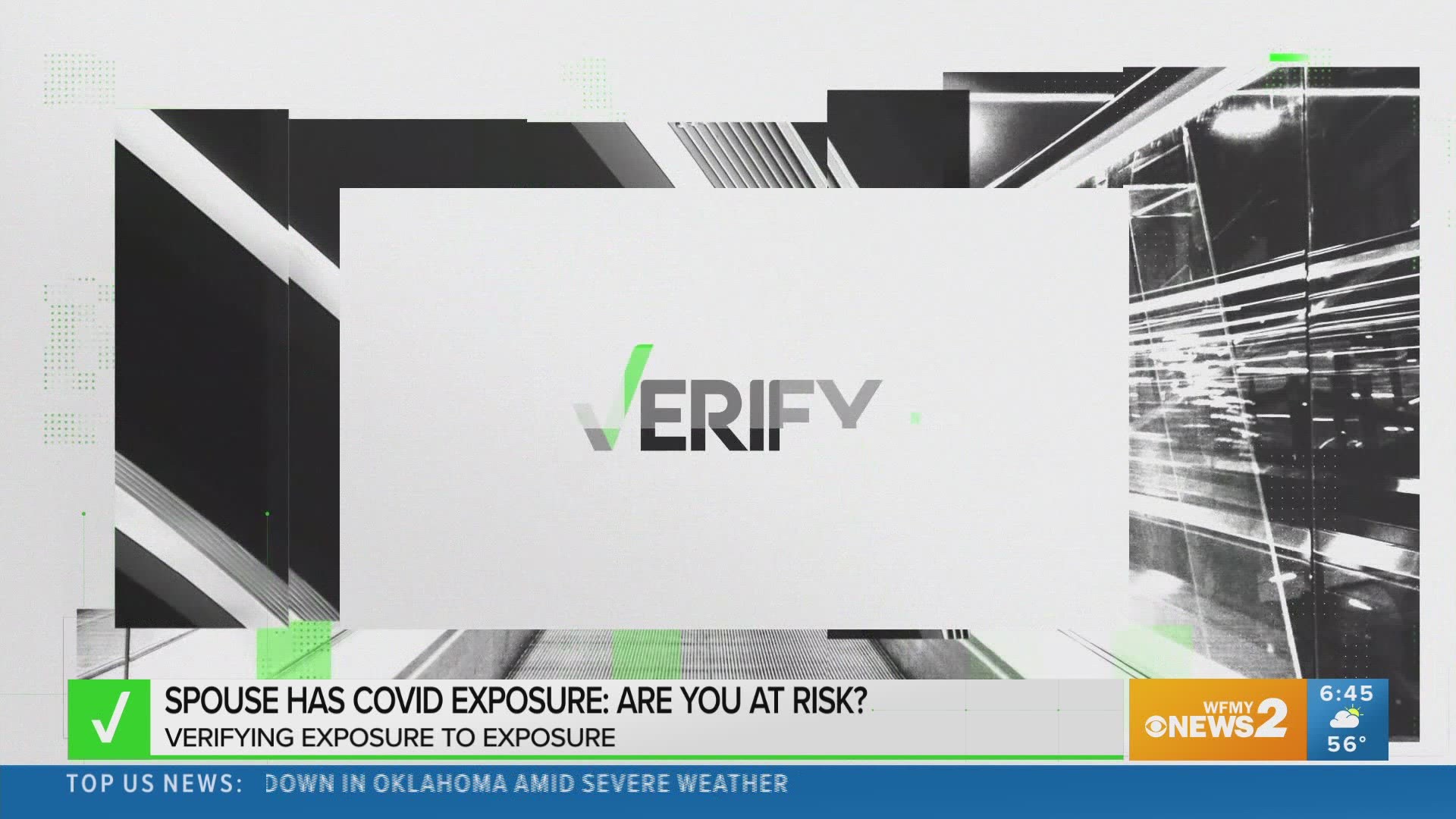WINSTON-SALEM, N.C. — To test or not to test -- to quarantine or not to quarantine?
Those are the confusing questions in this evolving world of COVID-19, as the federal government prepares to end its emergency COVID declaration in May. It signals the end of certain pandemic programs but not the end of COVID-19, and chances are, you know someone right now who is sick with the virus or had an exposure to it.
THE QUESTION
Say your loved one has a direct exposure at work and then comes home to you, do you need to quarantine? Let's VERIFY the rules for an exposure...to an exposure.
THE SOURCES
- Centers for Disease Control and Prevention (CDC)
- Emerging Infectious Diseases
- Chris Ohl, MD -- Atrium Health Wake Forest Baptist
THE ANSWER
No, you don't have to quarantine after being exposed to someone who had a direct exposure ('exposure to an exposure'), but the person directly exposed does need to take precautions.
THE PROCESS
Quarantine and isolation rules have evolved throughout the three-year pandemic, and currently they apply only to people exhibiting symptoms and/or testing positive on a COVID test.
"We don't quarantine contacts of contacts," explained infectious diseases physician Chris Ohl, MD.
He said, "So, the scenario of this, is if you have an exposure to COVID, and then you come home from your exposure at work and now your wife is exposed to you, she doesn't need to test. She doesn't need to quarantine. It's really only people who are directly exposed to people who test positive, either symptomatic or asymptomatic."
So, then, if the person directly exposed were to later test positive, how soon would he be contagious?
The Emerging Diseases Study found the incubation period for the common Omicron subvariants like BA.5 is shorter than that of the Delta strain that dominated 2021. That means an infected person could be contagious sooner but likely for a smaller window of time. So, keeping distance from loved ones after a direct exposure can help prevent them from getting sick.
The CDC says anyone directly exposed also should mask for five days (day zero is the day of exposure) and test on day six. If positive, or if symptoms develop, isolate immediately.
If symptoms develop within 10 days of the test, the clock restarts at day zero.
The CDC launched a COVID exposure and isolation calculator resource to figure out when and for how long to take precautions.
Do you see a claim you want us to VERIFY? E-mail VERIFY@wfmy.com.

